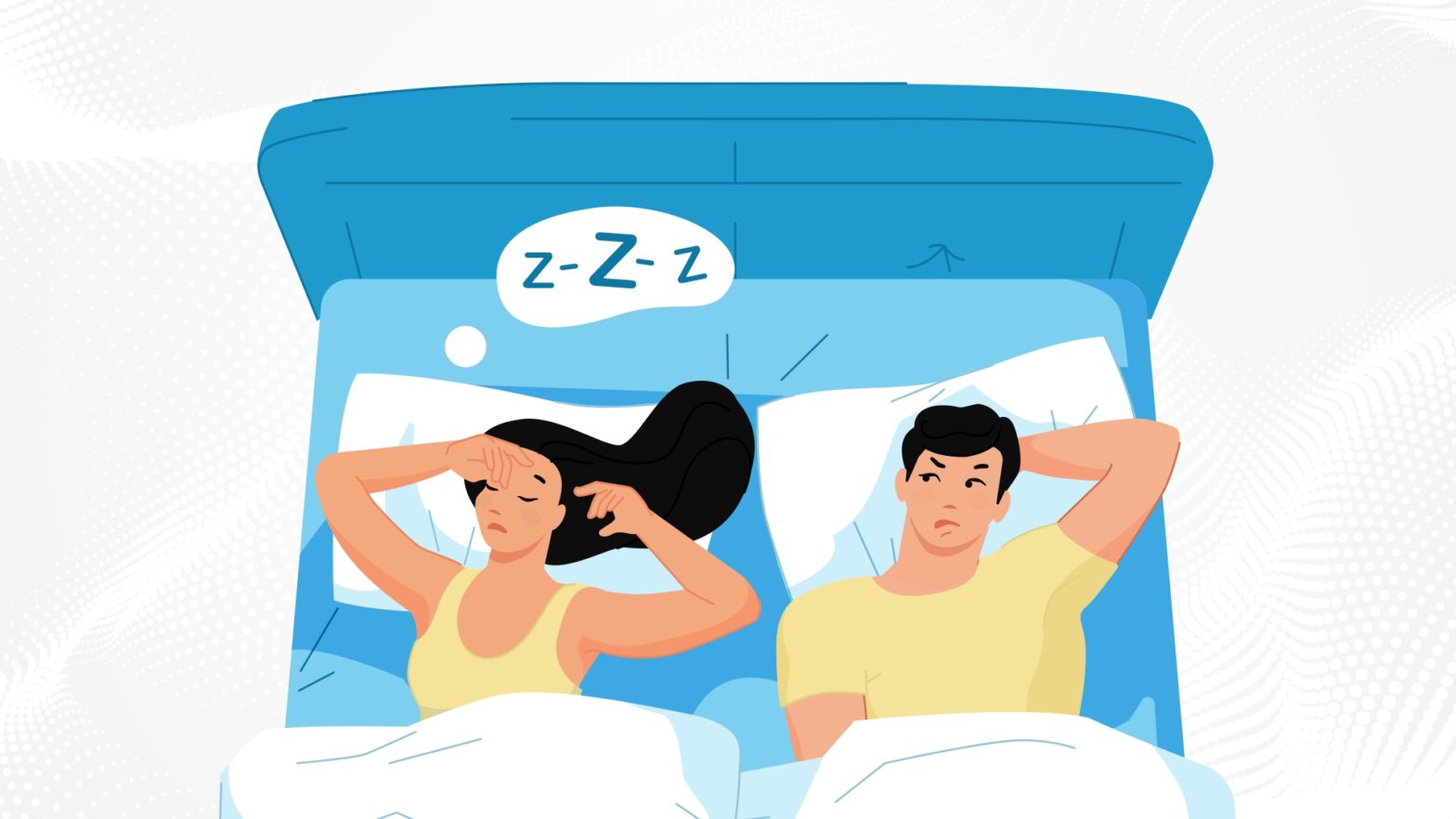
How to Help Your Partner Affected by Sleep Apnea
Sleep Apnea is a sleep disorder characterised by a lack of restful sleep. Its symptoms include daytime sleepiness, fatigue, inability to focus on tasks, snoring, unexpected weight gain, etc. A study titled ‘Prasad C.N. Obstructive Sleep Apnea Hypopnea Syndrome’ says that the percentage of Indians affected by OSA varies between 4.4 % and 13.7 %. Looking at gender-wise figures, the percentage varies between 4.4 % to 19.7 % for Indian males and 2.5 % to 7.4 % for Indian females.
People living with partners who have sleep apnea experience its impact directly or indirectly. If your partner snores very much during sleep, it affects your sleep and, hence, the following day. Even when they aren’t snoring it could be that your partner may be in a constant state of fatigue or has trouble focusing on what you communicate with them.
If you go out and they’re driving, the condition could impact their ability to focus on the road. It can go up to the state where they may become uninterested in going out or spending quality time with you, thus, affecting your relationship. In such cases, it becomes difficult to enjoy the finer things in life. Hence, this calls for medical intervention and lifestyle changes.
Sleep Apnea signs that your partner could have
- Loud snoring: One of the main signs of sleep apnea. Note the intensity and frequency before meeting the doctor.
- Constant morning headaches: Another sign of potential sleep apnea.
- Fatigue: If your partner feels extremely tired during the daytime, even after a good night’s sleep, it may indicate sleep apnea.
- Breathing patterns: If your partner is frequently gasping for air or stops breathing in between, they need to consult a doctor.
- Mood swings: Poor sleep leads to irritability, mood swings, anxiety and depression.
- Frequent urge to urinate.
- Concentration issues.
- Decrease in libido.
What can I do to help my partner with sleep apnea?
- Lifestyle changes: Encourage your partner to follow a healthy lifestyle through regular exercises, deep breathing exercises, a healthy and balanced diet, avoiding tobacco and alcohol and regular sleep-wake time.
- Open communication: Encourage your partner to share their concerns, fears, and experiences with sleep apnea. Also, assure your partner that you’re there to actively listen and support them.
- Patience: During the course of diagnosis and treatment, be patient and understanding as your partner navigates this phase of life.
- Sleep-friendly bedroom: Ensure a comfortable bedroom that supports restful sleep. The bedroom should be dark, cool and quiet. Keep it clutter-free while blocking out unwanted external light with curtains. Also, importantly, do invest in a comfortable mattress and pillow. Earplugs can be an option if external noise is disturbing.
- Screen time: Encourage your partner to wind down their gadgets at least an hour before bed to avoid disruption of melatonin production. Reading good books, a warm bath, etc. is conducive to good sleep.
Therefore, your support is vital in helping your partner sail through the sleep apnea phase with the least discomfort. It can make all the difference in their life.
Sleep Therapeutics is the first niche sleep center in Telangana and Andhra Pradesh. If your partner needs help with sleep apnea issues, you can always trust our sleep experts.
Also Read: Understanding Sleep Apnea Causes and Risk Factors
